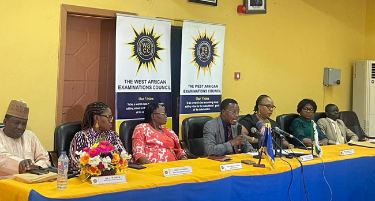In response to the nationwide strike initiated by the Nigerian Labour Congress (NLC) and the Trade Union Congress (TUC), the West Africa Examination Council (WAEC) has made it clear that it will not be joining the industrial action. Despite the widespread disruption caused by the strike, WAEC has confirmed that the ongoing West African Senior School Certificate Examination (WASSCE) will proceed as planned.
The strike, which began on Monday, June 3, 2024, followed a four-hour meeting on Sunday evening in Abuja between the leadership of the National Assembly and representatives of the NLC and TUC. The meeting failed to resolve the deadlock over the demand for a new minimum wage and the reversal of recent electricity tariff hikes. As a result, the labour unions declared an indefinite strike to press their demands.
However, in a statement issued on Monday by T.A.Y Lawson, the Head of National Office and Branch Controller of WAEC, the council emphasized its commitment to ensuring that the examinations are conducted without interruption. “The attention of the management has been drawn to a notice of the commencement of the indefinite strike by NLC and TUC effective from Monday, 3rd June, 2024. Please be formally informed that the conduct of WASSCE SC 2024 goes on as scheduled,” the statement read.
WAEC’s decision is driven by a strong sense of responsibility towards the students who are set to take their exams. The council expressed its solidarity with the concerns of the unions and the broader Nigerian populace but stressed that the students should not be disadvantaged by the strike. The statement continued, “For the aforesaid reason, WAEC will conduct the exams and school principals, supervisors, parents, and the general public should please take note and make adequate arrangements for their children to sit for the exam.”
The list of subjects scheduled for examination on Monday includes Physics 3 (Practical) (Alternative B), Computer Studies 3 (Practical), Insurance 2 (Essay), and Insurance 1 (Objective). WAEC’s determination to proceed with the exams underscores the importance of these assessments for the academic futures of the students involved.

The labour unions’ stance is rooted in the argument that the current minimum wage of ₦30,000 is no longer sufficient to meet the basic needs of the average Nigerian worker. They have pointed out that many state governors are not even adhering to this wage standard, which officially expired in April 2024. The Minimum Wage Act of 2019, signed by former President Muhammadu Buhari, mandates a review every five years to ensure that wages keep pace with the contemporary economic demands of workers.
The unions had set a deadline of May 31 for the Federal Government to agree on a new minimum wage. When this deadline passed without a satisfactory resolution, the unions declared a nationwide strike. Throughout the negotiations, the labour unions rejected three offers from the government, the latest being ₦60,000, insisting instead on a minimum wage of ₦4974 000 to reflect the severe inflation and economic hardship facing workers.
The strike is expected to have significant repercussions across various sectors of the economy. Yet, WAEC’s resolve to continue with the WASSCE exams highlights a commitment to educational continuity and the future prospects of Nigerian students. This decision underscores the delicate balance between addressing immediate economic grievances and maintaining essential services, such as education, that are critical to long-term national development.
As the strike unfolds, it remains to be seen how both the government and the labour unions will navigate these challenges. The government’s response and any potential concessions could play a crucial role in determining the duration and impact of the strike. Meanwhile, WAEC’s stance serves as a reminder of the importance of safeguarding the educational needs of the youth, even amid broader societal and economic upheavals.




